DIT Alternatives Group
In the summer of 2019, CAAT officially initiated a significant effort towards creating a framework for alternative methods for developmental immunotoxicity testing. This was marked by the formation of the International Working Group focused on the topic of Alternatives to in vivo Developmental Immunotoxicity Testing.
Why are Alternatives Needed?
The demand for non-animal New Approach Methods (NAMs) has been widely recognized as an urgent requirement in toxicity testing. The necessity for alternative/non-animal test methods extends across various aspects, including ethical animal welfare considerations, evaluation of more chemicals across a broader range of potential biological effects, and evaluation of more chemicals in a shorter time frame with fewer resources, with the ultimate goal of an equal or greater level of human health protection.
Current testing methods for Developmental Immunotoxicity (DIT) mainly rely on whole animal studies. There is a significant need for sensitive in vitro assays translatable across species that can aid the development of OECD guidelines, among other benefits.
Challenges and the Way Forward
The International Working Group at CAAT has identified the need to address various factors, including:
- Key molecular and biological events in developmental immunology relevant to DIT testing.
- Context-specific needs for in vivo and in vitro DIT testing strategies.
- Identification of DIT reference chemical candidates.
- Assessment of the usefulness and appropriateness of existing in vitro strategies.
- Identification of gaps in existing testing schemes that can be filled by novel in vitro DIT assays or testing strategies.
- Feasibility evaluation of in vitro DIT testing strategies to reduce/replace in vivo DIT strategies.
Working Group: Our Mission
The International Working Group’s mission is to identify gaps in alternative DIT and establish a framework to foster the refinement and development of new alternative test methods suitable for screening of DIT compounds. The group comprises stakeholders from regulatory agencies, NGOs, academia, and industry.
Steering Committee
Working Group Participants
Representatives from Academia, Government, and Industry & End-Users.
Academia
- Johanna Gostner, PhD (Biocenter, Medical University of Innsbruck
- Emanuela Corsini, PhD (University of Milan)
- Robert Wright (Librarian III, John Hopkins, SOM Admin Welch Informationist Services)
Government
- Dori R. Germolec, PhD (NTP/NIEHS)
- Suzanne Fitzpatrick, PhD, DABT (FDA)
- Cameron Bowes, PhD (Health Canada)
- David Lefebvre, PhD (Health Canada)
- Shifawn O’hara, PhD (Health Canada)
Industry & End-user
- Leigh Ann Burns-Naas, PhD, DABT, ERT, ATS (Magnolia Toxicology Consulting, LLC)
- Mark Collinge, PhD (Pfizer)
- Vic Johnson, PhD (BRT Labs)
